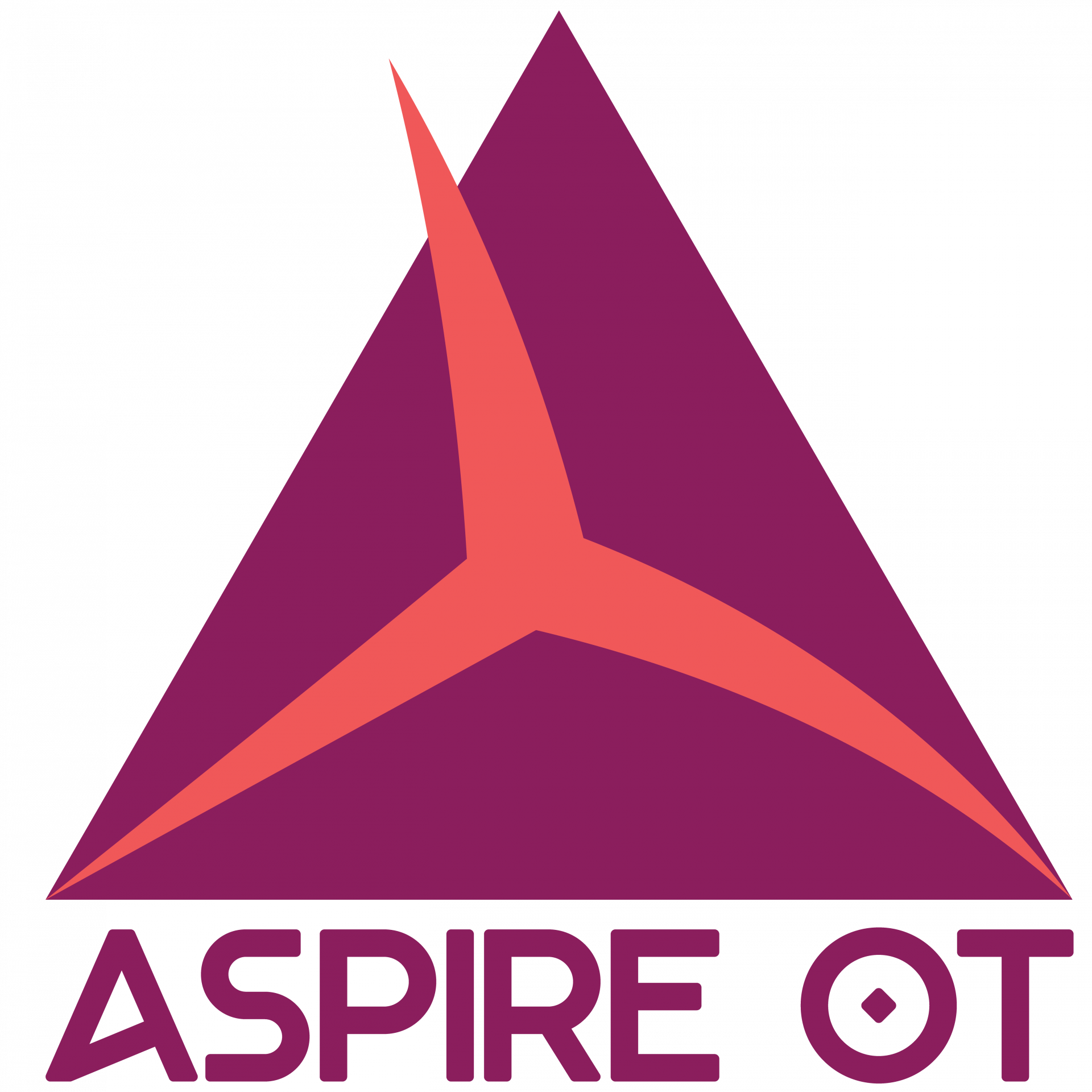
I used to get sweaty just thinking about it. The job interview. I found the whole process so nerve-racking. Meeting new people who are going to pass judgment on you and your skills. Sitting there anxiously in a carefully chosen outfit just hoping that you have all the right answers. I did not feel very impactful or in control of the situation during those interviews.
I want to share how I was able to completely change the interview experiences I was having. It is not magic. It doesn’t cost you money. For me, changing my interview experience evolved from several shifts and growth that happened over a period of time. Those helped me grow to have more confidence for the job interview. My hope is condensing these down in this format will help other OT practitioners (and future OT practitioners) in a much faster way than my own personal discovery.
Mistakes to Avoid
1. You go in not knowing much about the company.
It may not feel easy to prepare for a job interview. You aren’t sure how you would know the questions that might be asked. It’s okay. There are plenty of ways to get ready. First, go research the company to learn the mission and/or value statement, pillars of the company, and recent news then determine how your skills, values, and personality align with the company’s desired outcomes or values. You can sprinkle these into your interview answers.
2. You go in unprepared to really make yourself stand out.
You want to spend some time pulling out what makes you stand out for the job. What skills or accomplishments do you pride yourself on in your current or past jobs or during your occupational therapy program? You can start broad if that helps. Write those down. I found that usually, my answers were too generic to stop there because being a “good communicator” did not make me stand out. Dig deeper. What motivations or values lead you to that skill or accomplishment? Were there challenges that you faced during the development of the skill or on the road to the accomplishment? What was a situation that you really feel embodies this characteristic for you? Using these to guide me, I grew my skill of “being a good communicator” to being able to discuss specific points: As a thorough and empathetic communicator, I am able to contribute to and build strong collaborative relationships with my clients, OT team members, and other rehab team members. In a situation with many opinions, I enjoy finding the common ground to work to a solution that can bring others together. I then can use a short story to illustrate how I have done that.
Working through these things before the interview helps you have information and ideas to pull from for any question that they might ask. It also helps you feel more confident. It is much like preparing for a test. If you don’t study, going in for the test can have you feeling anxious and scared, but if you spent the time studying, you might have some butterflies, but your confidence is much higher.
Also, don’t ever try to stand out by putting others down. You want to ensure that you are not saying negative things about your past co-workers or jobs as part of your answers.
3. You think that you are the only one in the hot seat.
Remember, you are there to interview them too! I bet you are interested in finding a job that fits you. The interview is the time to be curious and start finding out information to help you see if the company and job are going to meet your needs. Maybe you haven’t thought much about what you are looking for other than a job. You can start by writing down the things that are most important to you in a job. Ask yourself, "what is it that I am looking for in a new job?” You can consider your past job experiences here to help you. Are you looking for mentorship? Or more autonomy? What productivity seems achievable to you? Having a big list is okay to start. You may want to then narrow down what is the most important to you or rank your wants. Now you know what to ask about during your interview! You can also ask about things that you might want to watch out for too. You have to be careful with this one as you don’t want to raise red flags though. If you are worried about how the OT and OTA collaboration is at a job, you can ask broadly what collaboration looks like there and then follow up with how they have worked out any disagreements in the past. I do want to caution you though. You must be realistic in what you are looking for in the job. The perfect job is hard to find (or impossible). You are not going to get everything on your list so be prepared to have some flexibility.
4. You leave your occupational therapy hat at the door.
Most job interviews aren’t going to have you working with a client, but don’t forget about your very valuable OT skills! OTs and OTAs are trained to be amazing active listeners and to understand even the meaning behind what is being said. We are also able to build rapport in a short amount of time. Use those skills in your job interview! Recognize that you are not just someone walking in hoping to hit the right note with the interviewers. You have been trained (and may be well practiced even) at discovering someone’s goals and motivations in order to support them in achieving those goals. You just have to use those same skills during your interview so you can tailor your answers to what the company and interviewers are looking for.
5. You feel you need a persona to land the job.
We all want to go in as our best selves for an interview, but be sure to bring the real, professional you. I discussed being prepared above which I feel is really important, but don’t try to pre-write out complete answers to memorize. You want to be genuine and authentic. I tend to focus on talking points based on #1 and #2 above instead of full, fleshed-out answers developed beforehand. Don’t try to create the perfect image of what the interviewer is wanting for this job. It will not come off very genuine or authentic. You want to connect your own skills and characteristics to what they are looking for.
Mistakes to Avoid
1. You go in not knowing much about the company.
It may not feel easy to prepare for a job interview. You aren’t sure how you would know the questions that might be asked. It’s okay. There are plenty of ways to get ready. First, go research the company to learn the mission and/or value statement, pillars of the company, and recent news then determine how your skills, values, and personality align with the company’s desired outcomes or values. You can sprinkle these into your interview answers.
2. You go in unprepared to really make yourself stand out.
You want to spend some time pulling out what makes you stand out for the job. What skills or accomplishments do you pride yourself on in your current or past jobs or during your occupational therapy program? You can start broad if that helps. Write those down. I found that usually, my answers were too generic to stop there because being a “good communicator” did not make me stand out. Dig deeper. What motivations or values lead you to that skill or accomplishment? Were there challenges that you faced during the development of the skill or on the road to the accomplishment? What was a situation that you really feel embodies this characteristic for you? Using these to guide me, I grew my skill of “being a good communicator” to being able to discuss specific points: As a thorough and empathetic communicator, I am able to contribute to and build strong collaborative relationships with my clients, OT team members, and other rehab team members. In a situation with many opinions, I enjoy finding the common ground to work to a solution that can bring others together. I then can use a short story to illustrate how I have done that.
Working through these things before the interview helps you have information and ideas to pull from for any question that they might ask. It also helps you feel more confident. It is much like preparing for a test. If you don’t study, going in for the test can have you feeling anxious and scared, but if you spent the time studying, you might have some butterflies, but your confidence is much higher.
Also, don’t ever try to stand out by putting others down. You want to ensure that you are not saying negative things about your past co-workers or jobs as part of your answers.
3. You think that you are the only one in the hot seat.
Remember, you are there to interview them too! I bet you are interested in finding a job that fits you. The interview is the time to be curious and start finding out information to help you see if the company and job are going to meet your needs. Maybe you haven’t thought much about what you are looking for other than a job. You can start by writing down the things that are most important to you in a job. Ask yourself, "what is it that I am looking for in a new job?” You can consider your past job experiences here to help you. Are you looking for mentorship? Or more autonomy? What productivity seems achievable to you? Having a big list is okay to start. You may want to then narrow down what is the most important to you or rank your wants. Now you know what to ask about during your interview! You can also ask about things that you might want to watch out for too. You have to be careful with this one as you don’t want to raise red flags though. If you are worried about how the OT and OTA collaboration is at a job, you can ask broadly what collaboration looks like there and then follow up with how they have worked out any disagreements in the past. I do want to caution you though. You must be realistic in what you are looking for in the job. The perfect job is hard to find (or impossible). You are not going to get everything on your list so be prepared to have some flexibility.
4. You leave your occupational therapy hat at the door.
Most job interviews aren’t going to have you working with a client, but don’t forget about your very valuable OT skills! OTs and OTAs are trained to be amazing active listeners and to understand even the meaning behind what is being said. We are also able to build rapport in a short amount of time. Use those skills in your job interview! Recognize that you are not just someone walking in hoping to hit the right note with the interviewers. You have been trained (and may be well practiced even) at discovering someone’s goals and motivations in order to support them in achieving those goals. You just have to use those same skills during your interview so you can tailor your answers to what the company and interviewers are looking for.
5. You feel you need a persona to land the job.
We all want to go in as our best selves for an interview, but be sure to bring the real, professional you. I discussed being prepared above which I feel is really important, but don’t try to pre-write out complete answers to memorize. You want to be genuine and authentic. I tend to focus on talking points based on #1 and #2 above instead of full, fleshed-out answers developed beforehand. Don’t try to create the perfect image of what the interviewer is wanting for this job. It will not come off very genuine or authentic. You want to connect your own skills and characteristics to what they are looking for.
Conclusion:
I hope that avoiding these mistakes will help you grow your confidence when heading into an interview. They won’t keep you from having a little nervousness, but being prepared and offering an authentic version of yourself that stands out for the job will make the whole interview process easier!
Occupational therapy continuing education courses to help you prepare for that new job!
Want more?
Find courses that will provide you with practical strategies you can take straight to your OT practice.
Aspire OT is a different kind of CEU company, owned by an OT & OTA.
Don't Miss A Thing!
Follow us on social media to stay up to date on all of our latest postings.
Join our newsletter
Get weekly updates on new blog posts, webinars, on-demand courses and more right in your mailbox.
Thank you!
Write your awesome label here.
Coaching, JUST for OT Practitioners!
Could you use support and mentorship to meet your OT career goals?
Just for OT Coaching is here to help you! Let Kim and Niccole share their experiences in implementing client-centered care utilizing a top-down approach to help you achieve better outcomes.


